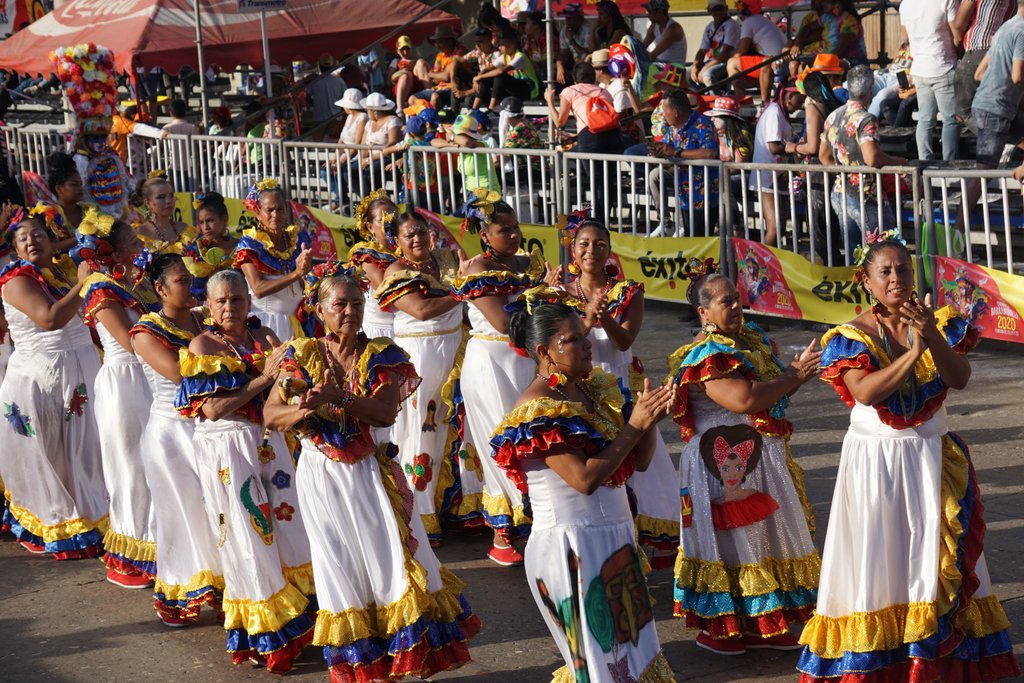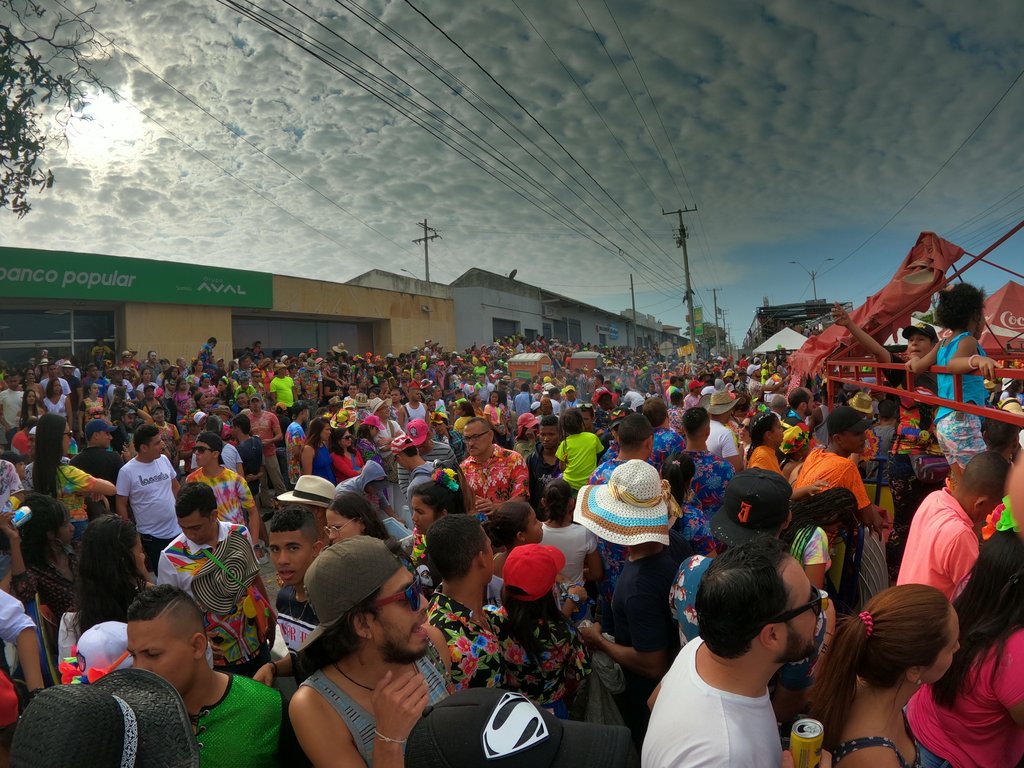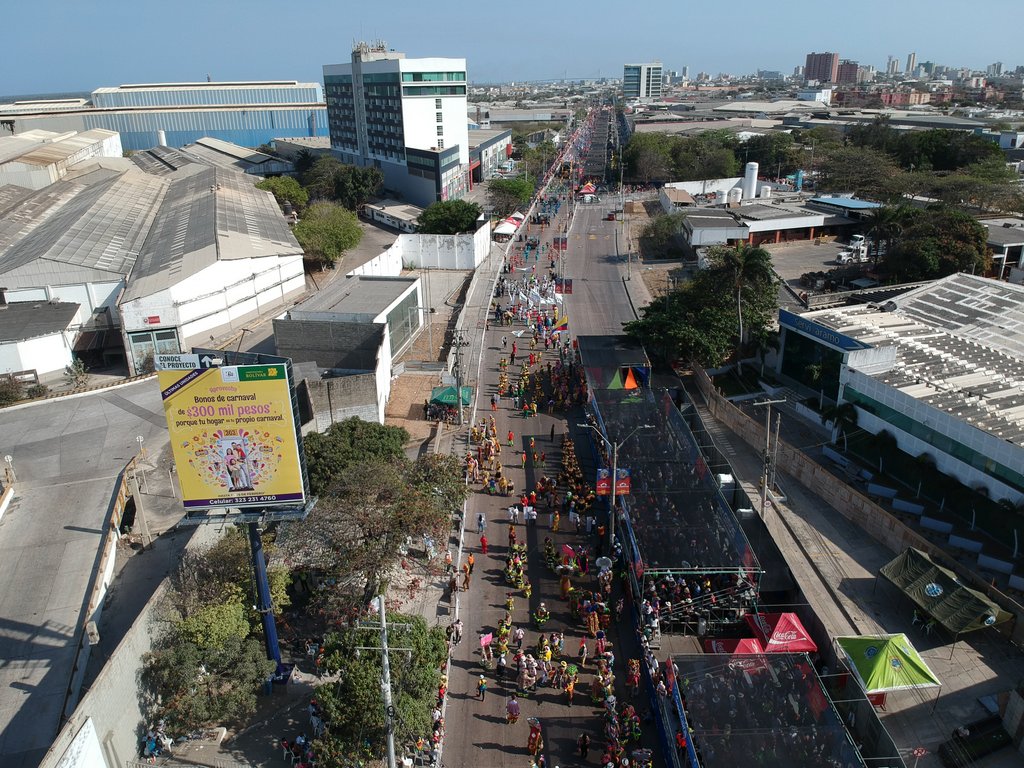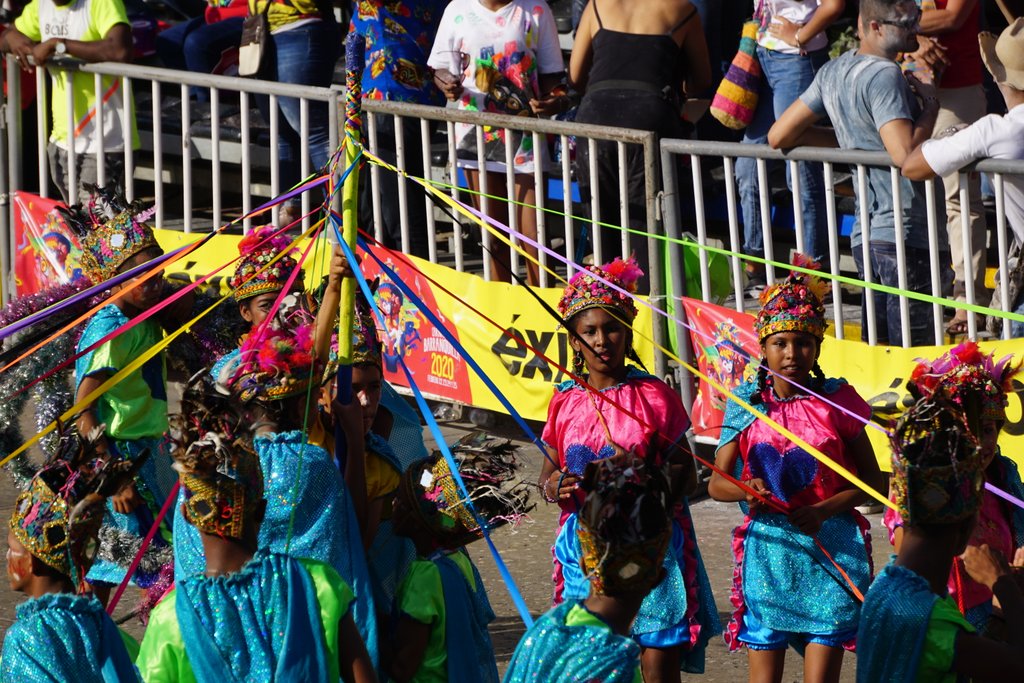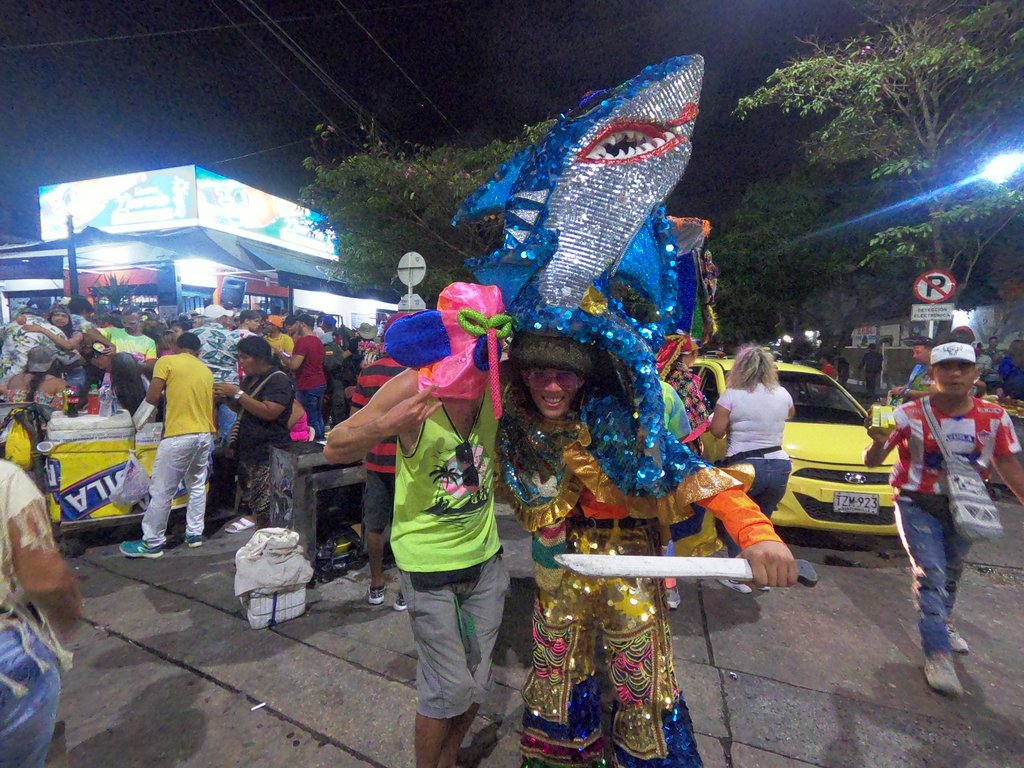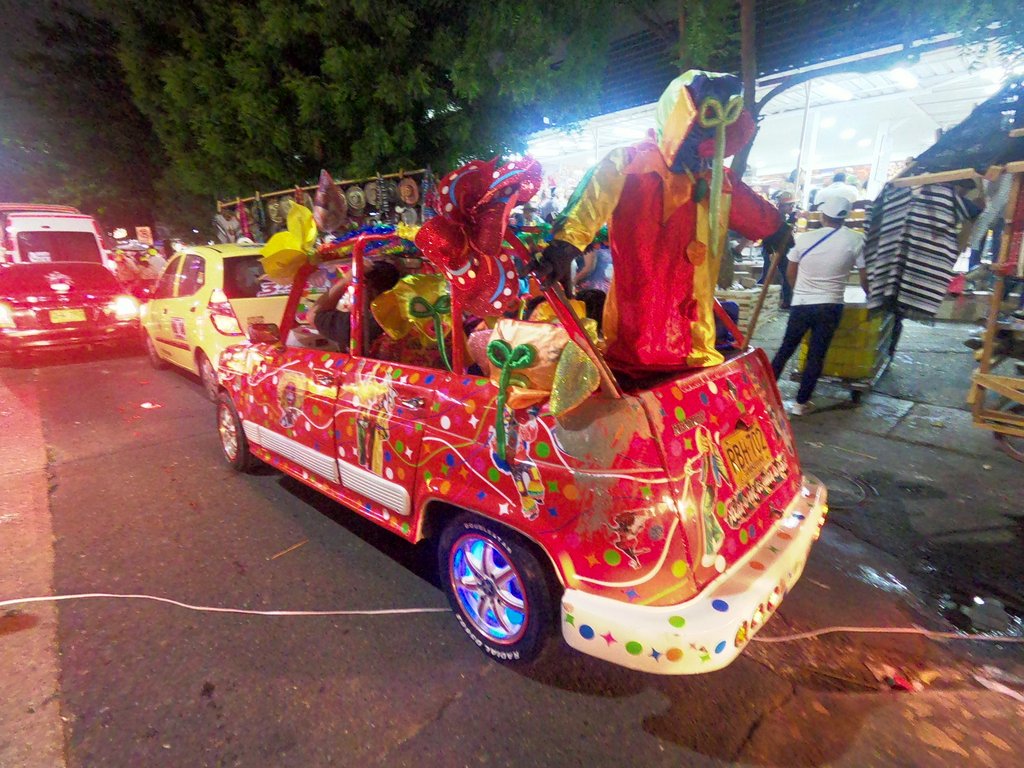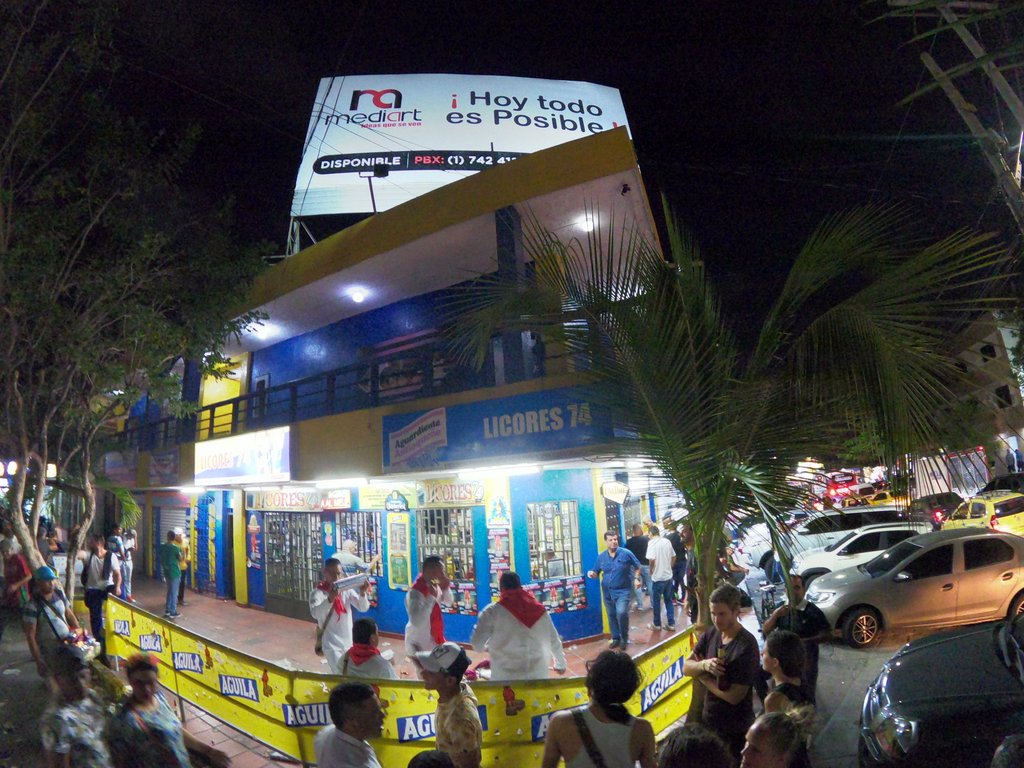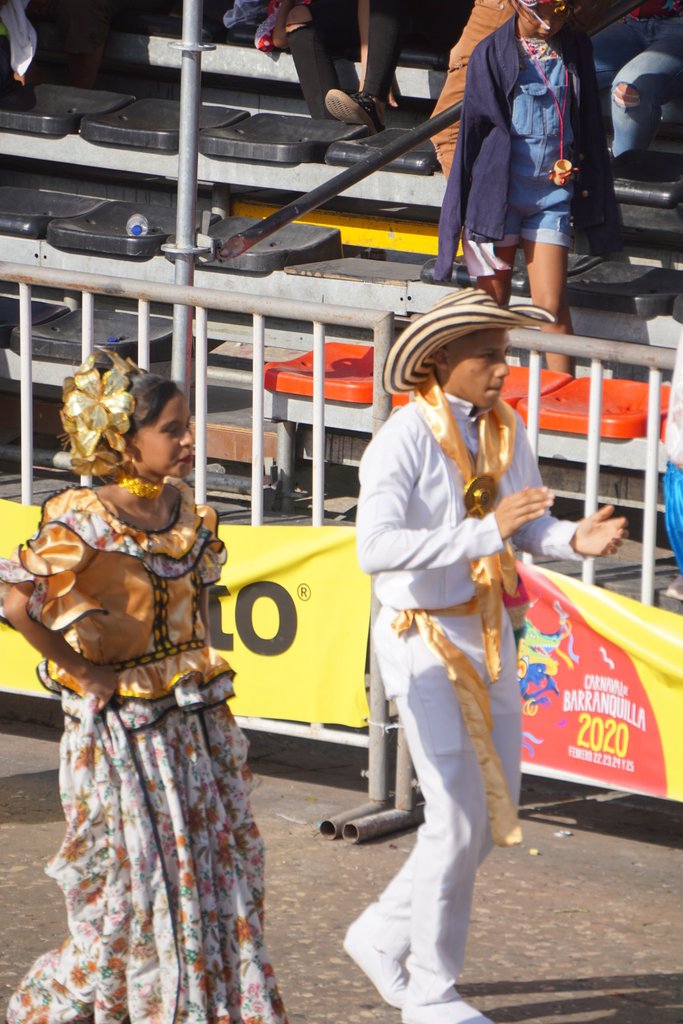Carnaval de Barranquilla Posted by sasha on Feb 27, 2020 in Uncategorized
¡El Carnaval de Barranquilla es la fiesta mas divertido en Colombia! (The Barranquilla Carnaval is the most fun party in Colombia!). It’s also one of the most important cultural events in the country – a tradition dating back hundreds of years. I just came back from the city after a week of participating in the Carnaval festivities and I’m excited to share the experience with you!
El Carnaval de Barranquilla comienza el sábado anterior al Miércoles de Ceniza (The Barranquilla Carnaval begins the Saturday before Ash Wednesday). While this is the official start, it actually begins well before that with pre-Carnaval events.
Los eventos del precarnaval comienzan oficialmente con la Lectura del Bando (The pre-carnival events officially begin with the reading of the Carnaval Proclamation). This takes place in the Plaza de la Paz, with el Alcalde (the mayor) handing over the keys to the city to la Reina del Carnaval (the Queen of Carnaval).
That’s right, there’s a queen (and a king as well) for Carnaval de Barranquilla! There’s a big event at the stadium for la Coronación de la Reina (the Coronation of the Queen). This tradition dates all the way back to 1918. The King is known as Rey Momo and he plays a big part in the celebrations.
Things officially get rolling with La Batalla de Flores (The Battle of Flowers). Es el evento más importante y más esperado (It is the most important and most anticipated event). The streets are packed with people coming out to attend the parade. Street food vendors cook up tasty arepas and chuzos and the aguardiente is flowing. It’s a wild party to say the least!
That’s not the only parade, though. In fact, there are several! The next day is la Gran Parada de Tradición y Folclor (the Grand Parade of Tradition and Folklore). There aren’t big floats in this parade, but there are thousands of people marching, dancing, and singing in traditional costumes. It’s much easier to find space on the street to enjoy this parade and tickets for the palcos (stands) are easier to come by.
Hay muchos tipos de música en los desfiles, pero la cumbia es el principal ritmo del Carnaval (There are many types of music in the parades, but cumbia is the principal rhythym of Carnaval). There’s also la puya, el jalao, el garabato, la guaracha, la champeta – the list goes on and on. One of the most important instruments is la caña de millo – a small flute made of carrizo cane. It’s really impressive watching guys jam out on these things!
On Monday, there’s la Gran Parada de Comparsas (the Great Parade of Fantasies) with a whole new batch of costumes, music, and choreographed performances. There’s also el Festival de Orquestas (the Orchestral Festival) going on today. It’s actually a competition spanning several different categories. Los ganadores en cada categoría reciben el codiciado Congo de Oro (The winners in each category receive the coveted Congo Gold).
Unfortunately I didn’t attend the Monday events. Three days of Carnaval revelry was enough for us, as we wanted to visit some other places on the coast during our short vacation. We headed to Santa Marta (where I’m writing this from) and are off to Playa Costeño for a few nights to finish the trip.
While the parades are great, one of the best things about the Carnaval here is just walking around and taking in the scene. Hay mucha ropa especial para Carnaval de Barranquilla (There are many special clothes for Barranquilla Carnival). It’s incredibly vibrant and colorful and the whole city seems to dress up!
To be honest, my favorite part of Carnaval was la marimonda. This important symbol of Barranquilla’s Carnaval is a very goofy mask with huge ears and a long nose. There’s a legend behind it that says a poor man once cobbled his meager resources together to make a costume to poke fun at the city’s upper class.
The marimonda is everywhere you look during Carnaval. People wear the masks and also wear the image on shirts and even special sequined fanny packs. Being a big fan of lucha libre and just dressing up in silly costumes in general, you know I had to buy myself a mask! It was pretty impossible to walk with it on, but I had lots of fun putting it on for photos.
The winner for the best marimonda-related thing I saw all weekend definitely goes to the guy in the marimonda-mobile. He had a special car totally decked out with colorful designs and a few marimonda hanging out of the windows. This is the kind of dedication that Barranquilleros show for their festive Carnaval!
While the parades take up the daytime, the fiesta continues long into the night. Hay grandes conciertos todas las noches en el estadio (There are big concerts every night in the stadium). This year they had international superstars like UB40, Ricky Martin, and local hero J Balvin, who comes from Medellín.
If you can’t afford a ticket for the big concerts, it’s no problem. Tons of people still come out to the stadium to listen from the street, and there are plenty of vendors selling cervezas frias and local snacks like empanadas. We danced outside during the J Balvin show with hundreds of others and had a blast!
During the main nights of Carnaval, they also have what’s called Baila la Calle (Dance the Street). As the name suggests, this is basically a big dance party in the streets of Barranquilla. Roads are closed off to vehicles and are taken over with revelers. People blast music out of their car speakers or home stereos and start an impromptu fiesta with a bunch of strangers.
Este fue mi tercer Carnaval en América Latina (This was my third Carnaval in Latin America). We went to Mazatlan, Mexico a few years ago and also traveled to Brazil to celebrate Carnaval in a few different places there. Each one has been fun for different reasons.
It’s fascinating to me to experiences these traditional festivals in different cultures. To me, it’s incredibly uplifting to see so many people having such a good time. Old and young, rich and poor, everyone comes out to celebrate Carnaval! It was a joyous occasion participating in Carnaval de Barranquilla, and I’d definitely do it again.
¿Has celebrado el carnaval? ¿Dónde? ¿Te gustó?
Have you celebrated Carnaval? Where? Did you like it?
Leave a comment and let us know if you have ever experienced Carnaval!

Build vocabulary, practice pronunciation, and more with Transparent Language Online. Available anytime, anywhere, on any device.



